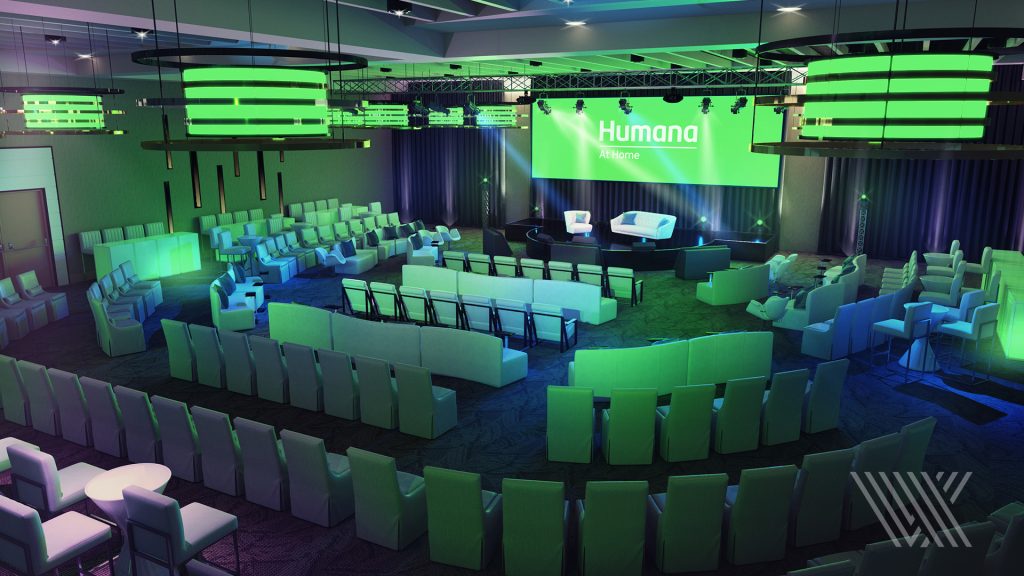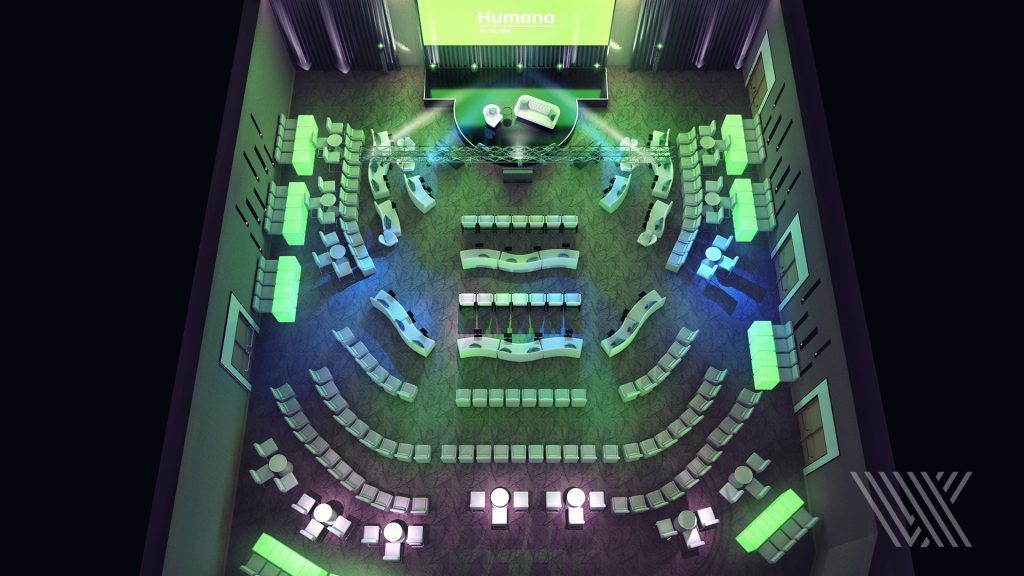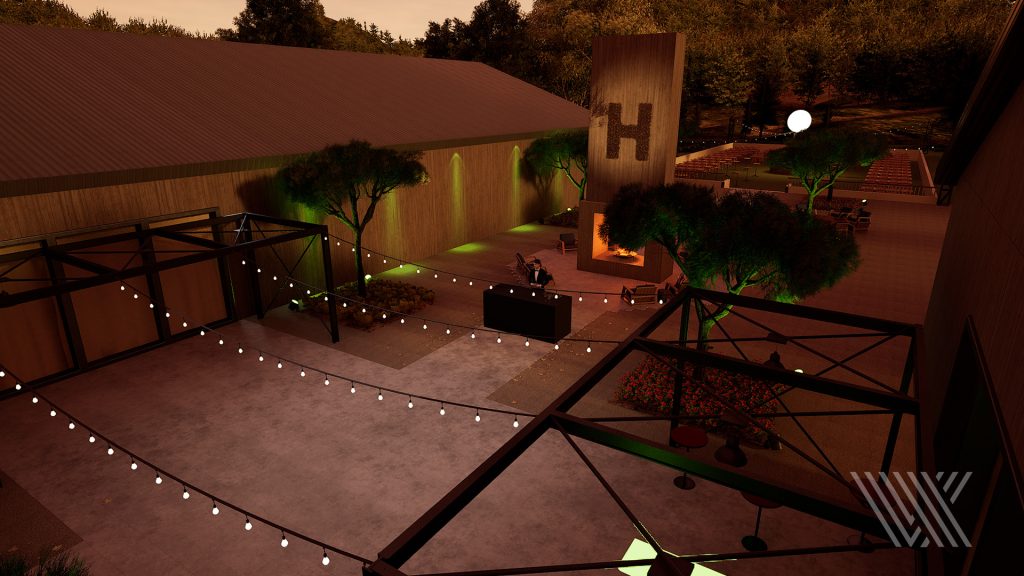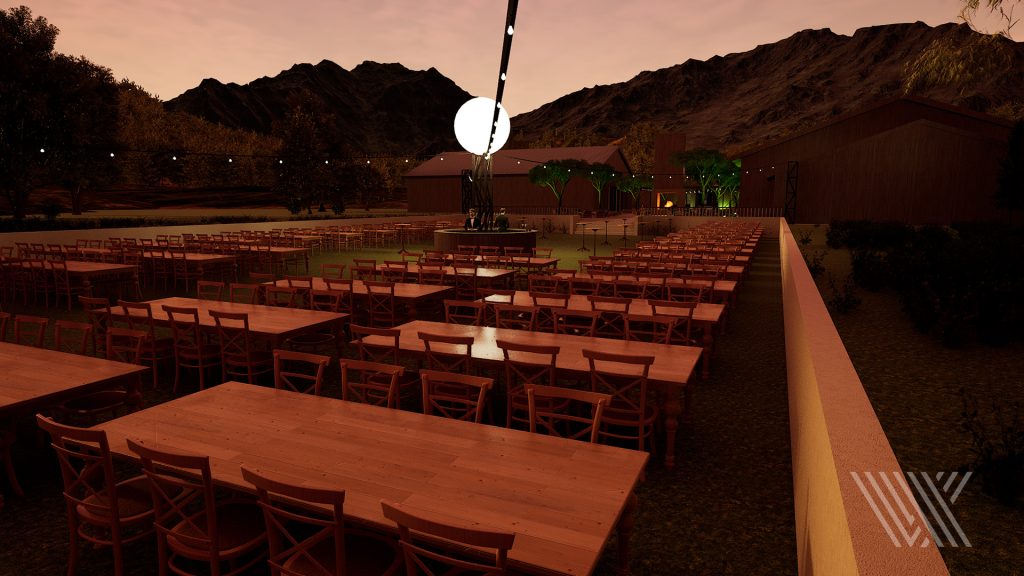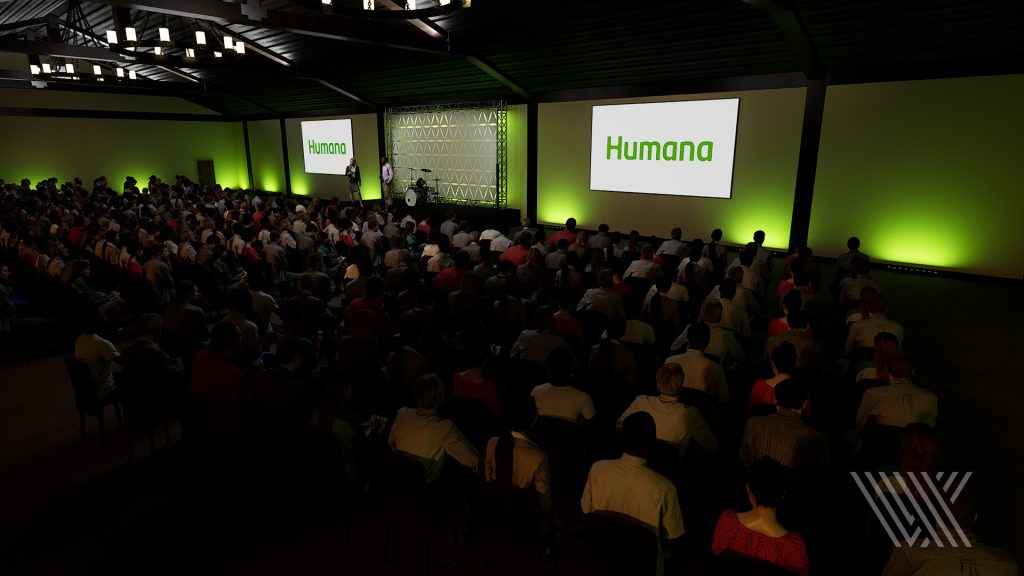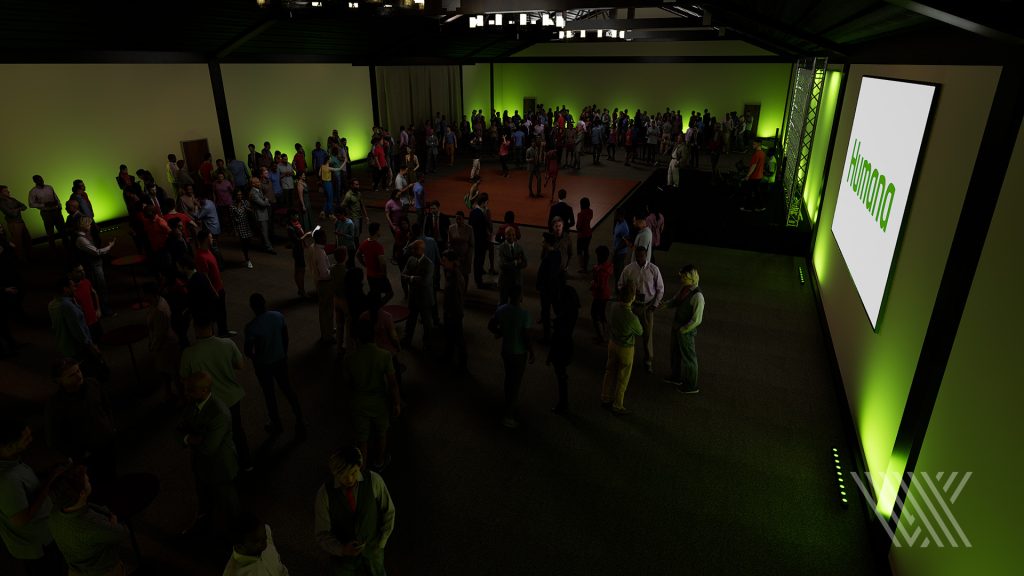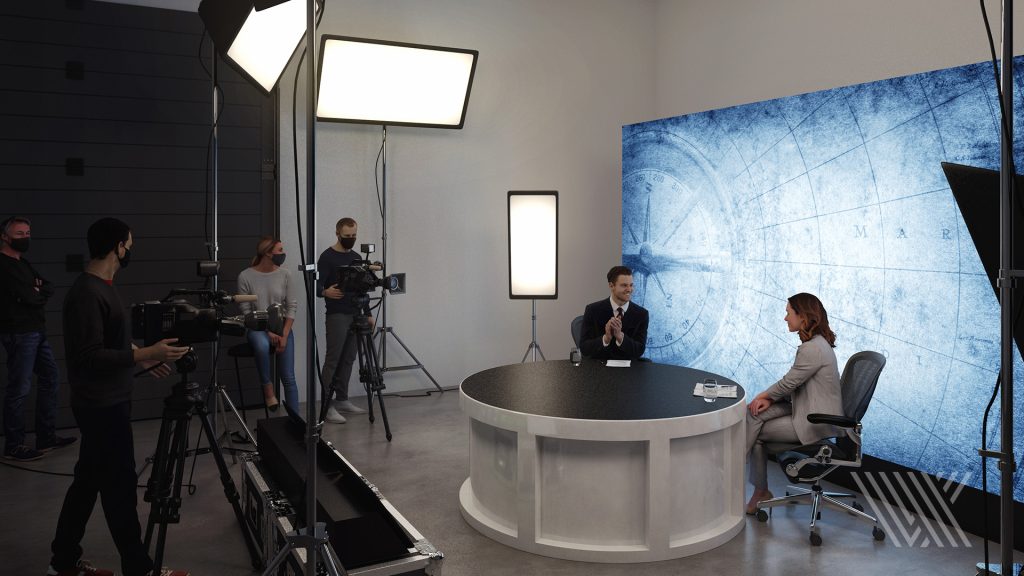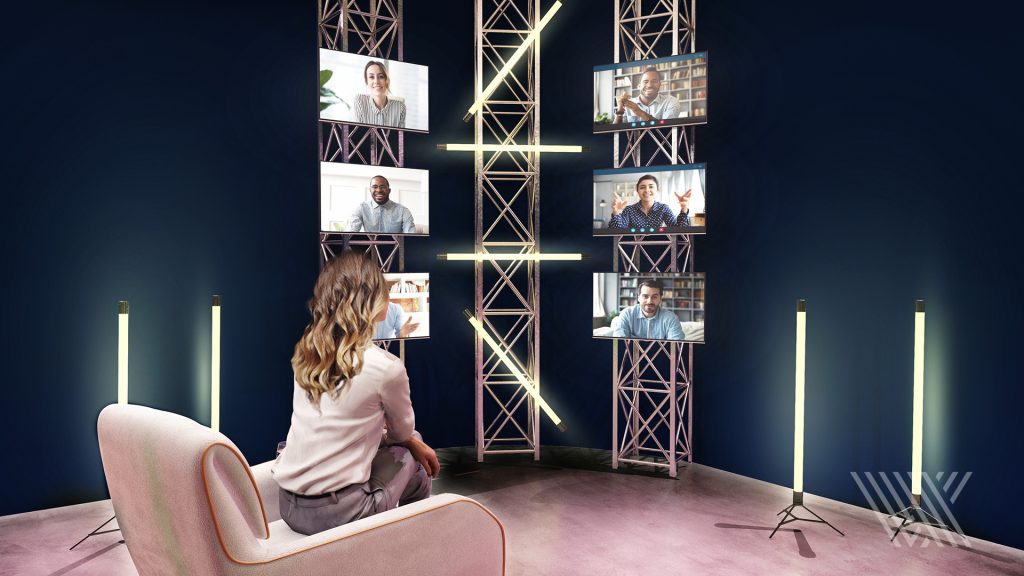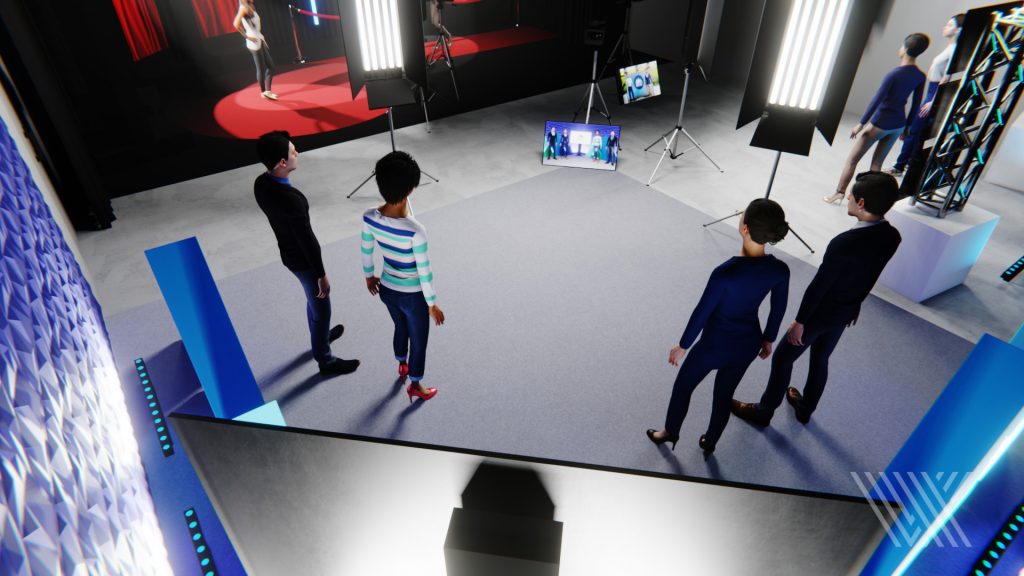Big Event?
Stressed?
We got you.
Live Event Production can be complex. We’re here to make it easy for you.
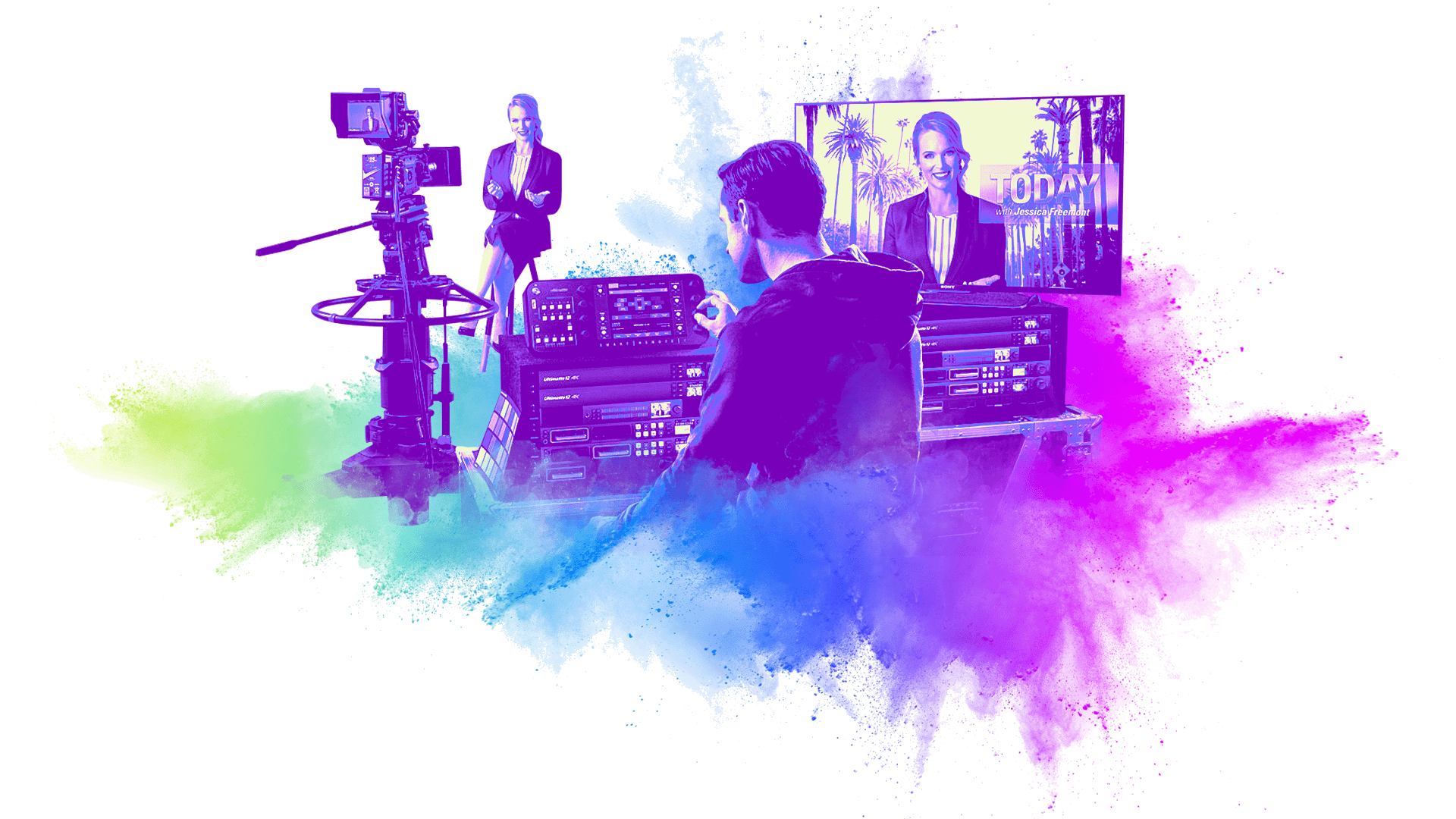
We produce all types of Live Events.
Small events, webinars, sales conferences, large town halls. We have you covered.
From innovative stage design and professional Audio-Visual integration to dynamic video production and seamless on-site execution, our team ensures every detail is covered to create an engaging and unforgettable experience. With years of expertise, cutting-edge technology, and a passion for storytelling, Vidionix transforms ordinary events into extraordinary moments that captivate audiences and deliver measurable impact.
Virtual
Live Streaming
Cameras, Audio, Lighting
Agenda & Run of Show
Platform Design & Support
Polling, Quizzes, Q&A
Hybrid
All of Virtual, Plus:
Remote Connectivity
Stage & Room Design
Audio/Visual
Travel-ready Teams
In-Person
All of Hybrid, Plus:
Worldwide Hotel/Property Partnerships
Content Creation & Management
Digital Signage and Messaging
Mobile App Development
We turn the complicated
into incredibly easy.
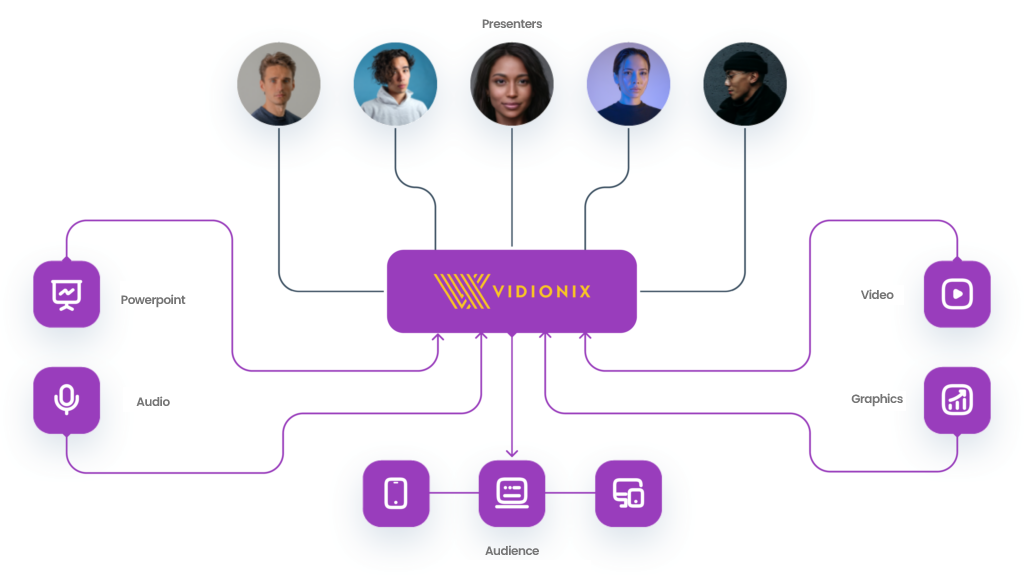
As a meeting professional, you have enough on your plate. There’s no time to worry about cameras, lights, remote presenters, graphics, and everything in between. Leave the technical details to us.
Our dedicated team of producers and directors will work with you from beginning to end. Ensuring your event meets your goals, runs smoothly, and looks professional.
Pricing customized just for you.
At Vidionix, we understand that no two meetings or events are the same. Our production costs are thoughtfully customized to meet your specific needs, ensuring you get the perfect balance of creativity and technology.
Custom Pricing
Our collaborative process ensures you’re only paying for what you need, with optional add-ons available to enhance your production. With Vidionix, you get a personalized approach that aligns with your vision and delivers exceptional results.
What’s Included:
- Dedicated Professional Crew
- Cutting-Edge Equipment
- Event Consulting
- Room & Stage Design
- Content Management and Creation
Pricing Examples
Townhall Livestream
Example: A one-day Townhall Livestream could consist of 5 crew (Producer/Director, Camera Operator, Audio Technician, and Production Assistant), Remote Cameras, Wireless Microphones, Lighting, Streaming Equipment, Computers, and more. Could also include project consulting, Run-of-Show creation, and content management. Estimate: $5,000-$10,000
Small Conference (under 200 people)
Example: A two-day small conference could consist of 6 crew (Producer/Director, Camera Operator, Video Technician, Audio Technician, Audio Assistant, and Production Assistant). General Session equipment typically includes: Camera, Wireless Microphones, Lighting, Projectors, Screens, Sound Reinforcement, Video Switching Equipment, Computers, and more. Could also include project consulting, Run-of-Show creation, and content management. Estimate: $15,000-$25,000
Large Conference (over 200 people)
Example: A two-day large corporate conference could consist of 7 crew (Producer/Director, Camera Operators, Video Technician, Graphics Operator, Audio Technician, Audio Assistant, and Production Assistant). General Session equipment typically includes: Cameras, Wireless Microphones, Lighting, Projectors, Screens, Sound Reinforcement, Video Switching Equipment, Computers, and more. Could also include project consulting, stage and room design, Run-of-Show creation, and content management and creation. Estimate: $30,000-$50,000
Large Conference (over 200 people) w/ Breakouts
Example: A two-day conference with breakouts could consist of 8 crew (Producer/Director, Camera Operator, Video Technician, Graphics Operator, Audio Technician, Audio Assistant, Production Assistant, and Breakout Room Technician). Equipment for General Session and Breakouts typically include: Cameras, Wireless Microphones, Lighting, Projectors, Screens, Sound Reinforcement, Video Switching Equipment, Computers, and more. Could also include project consulting, stage and room design, Run-of-Show creation, and content management and creation. Estimate: $50,000-$75,000
Virtual Fireside Chat
Example: A one-hour Virtual Fireside Chat could consist of 5 crew (Producer/Director, Camera Operators, Audio Technician, and Production Assistant), Cameras, Wireless Microphones, Lighting, Streaming Equipment, Computers, and more. Could also include project consulting, Run-of-Show creation, and content management. Estimate: $5,000-$7,5000
Any platform. Anywhere. Anytime.





Step into the future of event experiences with Vidionix, where innovation meets engagement seamlessly on any virtual platform, be it Zoom or Bizzabo. Elevate your events to new heights with our cutting-edge technology that transforms virtual, hybrid, and onsite gatherings into immersive and unforgettable experiences.
Whether it’s the seamless integration of high-quality video, interactive features that keep your audience captivated, or the flexibility to seamlessly transition between virtual and physical spaces, Vidionix ensures that your events are not just attended but experienced. Join the revolution and redefine the way you connect, engage, and inspire with Vidionix – where every event becomes a masterpiece.
Make a bold statement.
Take out the guess work of what your event will look like. Our team will take your vision and create realistic 3D event renders for:
• Ballrooms
• Conference Rooms
• Convention Centers
• Outdoor Venues
• Tradeshows
• Studio Sets
• & more
Whether your event is in-person, virtual or hybrid, our team has the ability to produce life-like renders that will impress.
Take your event to the next level
with a 3D Virtual Set.
Get viewers to tune in longer. Create stories with hyper-realistic augmented reality elements, and customize a variety of sets to enhance your meeting, show, or broadcast. Quickly change a set, deploy a new look, or share studio space without downtime for construction, moving set pieces, or competition for physical set space.
Advanced Studio
and Broadcast Control
Our state-of-the-art facility has hosted a variety of live virtual and hybrid events for some the biggest brands and organizations. A 30’x40′ center isolated studio is equipped with a full lighting grid, LED wall, green screen, background fabrics, hard scenics, and more. Two broadcast control rooms flank the studio built specifically for enterprise-level virtual and hybrid productions.
Studio Specs:
HD/4K Broadcast Enabled
Fiber Network Backbone
LiveU Equipped
Multiple Set Configurations
Intelligent Lighting
Unity Comm System
Remote Presenter Ready
Robust Live Streaming
Dante Equipped Audio
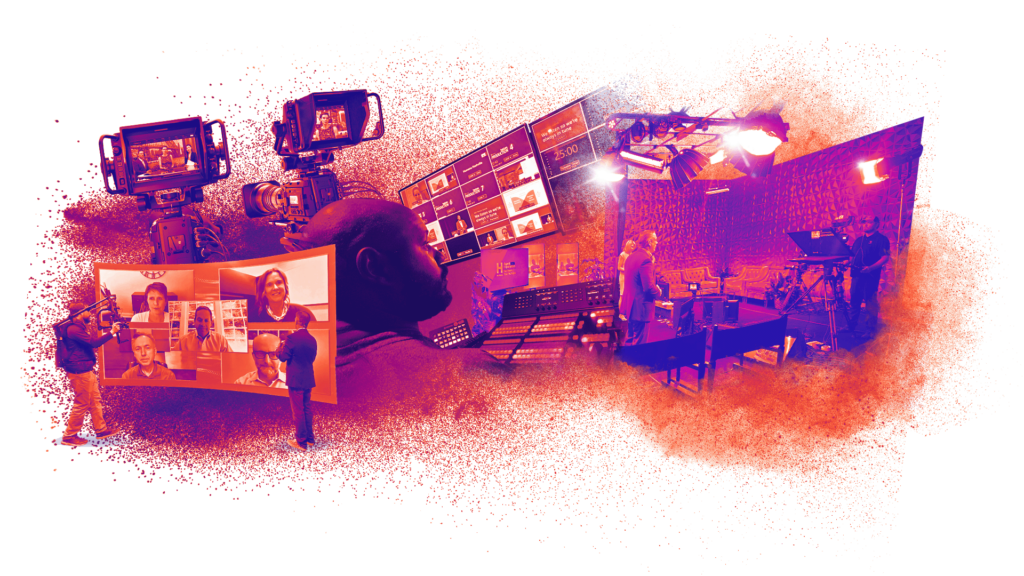
FAQs
What type of industries have you worked with?
Vidionix has collaborated with a diverse array of industries to deliver virtual, hybrid, and onsite event solutions tailored to their specific needs and objectives. Some of the industries Vidionix has worked with include:
- Corporate Events: Vidionix has provided virtual and hybrid event services for corporate conferences, product launches, shareholder meetings, and executive summits, offering live streaming, interactive platforms, and multimedia presentations to engage remote and in-person audiences effectively.
- Technology: Vidionix has partnered with technology companies to produce virtual trade shows, product unveilings, developer conferences, and webinars, leveraging advanced digital platforms and interactive experiences to showcase new products, innovations, and industry trends.
- Education and Training: Vidionix has worked with educational institutions, training organizations, and e-learning platforms to deliver virtual classrooms, online workshops, and hybrid training events, integrating live lectures, interactive modules, and multimedia content to enhance learning outcomes.
- Nonprofit and Fundraising: Vidionix has supported nonprofit organizations and charitable foundations in hosting virtual galas, fundraising events, and awareness campaigns, providing live streaming, donation platforms, and compelling storytelling to engage donors and supporters worldwide.
- Entertainment and Media: Vidionix has collaborated with entertainment companies, media outlets, and broadcasting networks to produce virtual concerts, film premieres, awards shows, and live performances, utilizing immersive experiences and cutting-edge technology to entertain and engage audiences online.
- Healthcare and Medical: Vidionix has assisted healthcare providers, medical associations, and pharmaceutical companies in hosting virtual conferences, medical symposiums, and healthcare forums, delivering telemedicine solutions, interactive workshops, and educational content to healthcare professionals and patients.
- Trade and Industry: Vidionix has worked with trade associations, industry conferences, and professional organizations to facilitate virtual trade shows, expos, and networking events, offering virtual booths, exhibitor showcases, and interactive sessions to connect industry stakeholders and facilitate business interactions.
- Government and Public Sector: Vidionix has supported government agencies, municipalities, and public sector organizations in hosting virtual town halls, public forums, and civic engagement events, providing live streaming, Q&A sessions, and interactive platforms to promote transparency and public participation.
These are just a few examples, and Vidionix’s expertise in virtual, hybrid, and onsite event production allows them to adapt to the unique needs and objectives of clients across various industries, delivering innovative and impactful event experiences.
How much does a hybrid event cost?
The cost of a hybrid event can vary widely depending on various factors such as the size and complexity of the event, the number of in-person and virtual attendees, the duration of the event, the venue, the technology and equipment required, and the level of production quality desired.
Some of the key cost considerations for a hybrid event may include:
- Venue: Renting a venue for the in-person component of the event can be a significant expense, including costs for space rental, catering, AV equipment, and staff.
- Technology: The cost of technology and equipment for live streaming, virtual conferencing platforms, cameras, lighting, sound equipment, and internet connectivity can add up, especially for high-quality production.
- Production and Staffing: Hiring professionals such as event planners, technicians, videographers, and production crews to manage the logistics, setup, and execution of the event can contribute to the overall cost.
- Marketing and Promotion: Budget for marketing and promotion efforts to attract attendees, both in person and online, through channels such as social media, email marketing, advertising, and PR.
- Content Creation: Expenses for developing content, presentations, multimedia materials, and interactive elements for both the in-person and virtual components of the event.
- Additional Features: Consideration of additional features such as virtual networking tools, interactive Q&A sessions, virtual exhibition booths, and attendee engagement activities.
Overall, the cost of a hybrid event can range from a few thousand dollars to tens or even hundreds of thousands of dollars, depending on the scale and scope of the event and the specific requirements of the organizers. It’s essential to work closely with event planners and production teams to develop a budget that aligns with the objectives and expectations of the event while ensuring a high-quality experience for both in-person and virtual attendees.
Why Host A Hybrid Event?
Hosting a hybrid event with Vidionix offers numerous advantages and opportunities for organizers looking to create impactful and engaging experiences for both in-person and virtual attendees. Here are some compelling reasons to choose Vidionix for your hybrid event:
- Expertise in Hybrid Event Production: Vidionix has extensive experience in producing hybrid events, leveraging their expertise in video production, live streaming, and virtual event technology to seamlessly integrate in-person and virtual components and deliver a cohesive and engaging experience for all attendees.
- State-of-the-Art Facilities: Vidionix’s state-of-the-art studios and production facilities provide the perfect environment for hosting hybrid events, offering versatile spaces equipped with advanced technology, professional-grade equipment, and experienced staff to ensure a high-quality production.
- Customized Solutions: Vidionix works closely with clients to understand their unique objectives, audience, and event requirements, offering customized solutions tailored to meet their specific needs and deliver the desired outcomes.
- Interactive and Engaging Experiences: Vidionix specializes in creating interactive and engaging experiences for both in-person and virtual attendees, incorporating features such as live polling, Q&A sessions, virtual networking, and interactive presentations to foster meaningful connections and participation.
- Scalability and Flexibility: Whether you’re hosting a small-scale seminar or a large-scale conference, Vidionix offers scalable and flexible solutions to accommodate events of all sizes and formats, allowing organizers to adapt and customize their event as needed.
- Technical Expertise and Support: Vidionix provides comprehensive technical support throughout the planning, execution, and post-event phases, ensuring smooth operation, troubleshooting any issues that may arise, and optimizing the overall event experience for attendees.
- Enhanced Reach and Accessibility: By hosting a hybrid event with Vidionix, organizers can extend the reach of their event beyond the physical venue to a global audience, making it more accessible to participants from anywhere in the world and maximizing attendance and engagement.
Overall, hosting a hybrid event with Vidionix offers organizers the opportunity to leverage cutting-edge technology, expert support, and customized solutions to create dynamic, inclusive, and memorable experiences that drive meaningful connections, engagement, and results.
What are some of the challenges of hosting a hybrid event?
Hosting a hybrid event comes with its own set of challenges, requiring organizers to navigate logistical, technical, and operational considerations to ensure a successful and seamless experience for both in-person and virtual attendees. Some of the challenges associated with hosting a hybrid event include:
- Technical Complexity: Integrating in-person and virtual components of the event requires sophisticated technology and equipment, including live streaming, video conferencing, and interactive tools, which can be complex to set up and manage.
- Connectivity Issues: Ensuring reliable internet connectivity and bandwidth for both in-person and virtual attendees is crucial to prevent disruptions, buffering, or dropped connections that can hinder the overall event experience.
- Audience Engagement: Keeping both in-person and virtual attendees engaged and interactive throughout the event poses a challenge, as organizers must find ways to facilitate meaningful participation, networking, and interaction across different settings.
- Content Delivery: Delivering content effectively to both in-person and virtual audiences while maintaining consistency and relevance can be challenging, requiring careful planning and coordination to ensure that all attendees receive valuable and engaging content.
- Logistical Coordination: Coordinating logistics such as scheduling, registration, attendee management, and onsite support for in-person attendees, as well as providing technical support and troubleshooting for virtual attendees, can be complex and demanding.
- Hybrid Audience Dynamics: Managing the dynamics between in-person and virtual audiences, including balancing attention, participation, and engagement, can be challenging, as organizers must cater to the unique needs and preferences of each group.
- Security and Privacy Concerns: Ensuring the security and privacy of both in-person and virtual attendees’ data, information, and interactions is paramount, requiring robust measures to prevent unauthorized access, data breaches, or privacy violations.
- Cost Considerations: Hosting a hybrid event can be more costly than traditional in-person or virtual-only events, as it involves additional expenses for technology, equipment, staffing, and logistics to accommodate both in-person and virtual attendees.
Despite these challenges, with careful planning, effective communication, and the right expertise and support, organizers can overcome obstacles and successfully host a hybrid event that delivers value, engagement, and impact for all participants.
How do you calculate the ROI of virtual/hybrid events?
Calculating the return on investment (ROI) of a virtual or hybrid event involves evaluating the financial benefits and costs associated with hosting the event and comparing them to the initial investment. Here’s a step-by-step approach to calculating the ROI of a virtual or hybrid event:
- Define Objectives: Start by clearly defining the objectives of the event, such as generating leads, driving sales, increasing brand awareness, fostering relationships, or educating attendees. These objectives will serve as the basis for measuring the success of the event and determining its ROI.
- Identify Key Metrics: Determine the key performance indicators (KPIs) that align with the objectives of the event. These may include metrics such as:
- Number of registrations and attendees
- Engagement metrics (e.g., session attendance, interaction rates, chat participation)
- Lead generation (e.g., number of leads generated, quality of leads)
- Sales revenue or conversions attributed to the event
- Brand visibility and sentiment (e.g., social media mentions, website traffic)
- Cost per attendee or cost per lead
- Calculate Costs: Identify and quantify all costs associated with planning, promoting, and hosting the virtual or hybrid event. These may include expenses such as:
- Technology and equipment (e.g., virtual event platform, streaming software, AV equipment)
- Marketing and promotion (e.g., advertising, email marketing, social media promotion)
- Content creation (e.g., speaker fees, production costs)
- Staffing (e.g., event planners, technical support, moderators)
- Venue rental (for hybrid events)
- Travel and accommodation (for hybrid events)
- Estimate Revenue or Savings: Determine the revenue generated or cost savings achieved as a result of the event. This may include:
- Direct revenue generated from ticket sales, sponsorships, or product sales
- Indirect revenue generated from leads, conversions, or new business opportunities
- Cost savings from reduced travel, accommodation, and venue expenses (for hybrid events)
- Calculate ROI: Once you have quantified the costs and estimated the revenue or savings associated with the event, you can calculate the ROI using the following formula:
𝑅𝑂𝐼=(𝑁𝑒𝑡𝑃𝑟𝑜𝑓𝑖𝑡𝑇𝑜𝑡𝑎𝑙𝐶𝑜𝑠𝑡𝑠)×100%
Where:
- Net Profit = Revenue Generated or Savings Achieved – Total Costs
- Analyze Results: Analyze the calculated ROI to determine the overall success and effectiveness of the virtual or hybrid event. If the ROI is positive, it indicates that the event generated a favorable return on investment. Conversely, if the ROI is negative, it suggests that the event may not have achieved its objectives or may have incurred higher costs than anticipated.
- Identify Opportunities for Improvement: Use the insights gained from the ROI analysis to identify areas of strength and areas for improvement in future virtual or hybrid events. Adjust strategies, tactics, and resource allocation accordingly to optimize ROI in future events.
By following these steps and conducting a comprehensive ROI analysis, organizers can gain valuable insights into the effectiveness of their virtual or hybrid events and make data-driven decisions to maximize their impact and return on investment.
Next, compare the costs to the results achieved. Imagine your event cost $5,000 to produce and helped you acquire 100 new leads. Based on previous results, you know that roughly 40% of your leads will turn into paying customers. So, in a nutshell, you paid $5,000 for 40 new customers. As long as your company will profit $250 or more per paying customer, your virtual event produced a positive ROI.
Always keep in mind that ROI should be measured at different stages. In most industries, the revenue is not generated overnight. We typically recommend setting up gauges to track results on 3-month, 6-month, 9-month, and 12-month marks. More often than not, if you’re patient, the ROI you generate will be well worth the effort.
Does Vidionix use audience engagement tools for virtual, hybrid, and onsite events?
Yes, Vidionix may utilize engagement tools like Slido during events to enhance interactivity, participation, and engagement among attendees, whether they are attending virtually or in person. Slido is a popular audience engagement platform that allows event organizers to crowdsource questions, conduct live polls, host Q&A sessions, and facilitate interactive discussions in real-time.
By integrating Slido or similar engagement tools into virtual or hybrid events, Vidionix can create dynamic and engaging experiences that encourage active participation and interaction from attendees. These tools enable organizers to gauge audience sentiment, gather valuable feedback, and foster meaningful connections between speakers and participants.
Utilizing engagement tools like Slido aligns with Vidionix’s commitment to delivering innovative and interactive event experiences that captivate audiences, drive engagement, and maximize the impact of virtual and hybrid events.
Which types of virtual events does Vidionix support?
Vidionix supports a wide range of virtual events, leveraging their expertise in video production, live streaming, and virtual event technology to deliver engaging and impactful experiences tailored to the specific needs and objectives of their clients. Some of the virtual events that Vidionix may support include:
- Virtual Conferences and Summits: Vidionix assists in hosting virtual conferences and summits, providing live streaming, interactive platforms, and multimedia presentations to engage remote attendees, facilitate networking, and deliver educational content.
- Webinars and Online Workshops: Vidionix offers solutions for hosting webinars and online workshops, including live streaming, presentation tools, Q&A sessions, and interactive features to deliver informative and engaging sessions to virtual audiences.
- Virtual Trade Shows and Expos: Vidionix facilitates virtual trade shows and expos, providing virtual booths, exhibitor showcases, live demos, and networking opportunities to connect exhibitors with attendees and showcase products and services in a virtual environment.
- Virtual Product Launches: Vidionix supports virtual product launches, offering live streaming, product demonstrations, interactive presentations, and Q&A sessions to introduce new products, features, or services to a global audience.
- Virtual Networking Events: Vidionix helps organize virtual networking events, providing interactive platforms, breakout rooms, icebreaker activities, and networking tools to facilitate connections, conversations, and relationship-building among attendees.
- Virtual Galas and Fundraisers: Vidionix assists in hosting virtual galas and fundraisers, offering live streaming, donation platforms, storytelling videos, and interactive elements to engage donors, raise funds, and support charitable causes.
- Virtual Training and Education Programs: Vidionix supports virtual training and education programs, providing live streaming, interactive modules, assessments, and virtual classrooms to deliver effective and engaging learning experiences to remote participants.
- Virtual Town Halls and Public Forums: Vidionix facilitates virtual town halls and public forums, offering live streaming, Q&A sessions, polling, and interactive features to promote transparency, civic engagement, and public participation.
These are just a few examples, and Vidionix’s expertise in virtual event production allows them to adapt to the unique needs and objectives of clients across various industries, delivering innovative and immersive virtual experiences that captivate audiences and drive results.
How does VIdionix support onsite events?
Vidionix can support onsite events by collaborating with local audiovisual (AV) companies to provide comprehensive event production services. Here’s how Vidionix may support onsite events in partnership with local AV companies:
- Technical Expertise: Vidionix brings technical expertise in video production, live streaming, and event technology, complementing the capabilities of local AV companies. Vidionix can advise on the latest AV trends, best practices, and technologies to ensure the seamless integration of audiovisual elements into the event.
- Equipment Rental and Setup: Vidionix can coordinate with local AV companies to provide equipment rental and setup services, including cameras, lighting, sound systems, projectors, screens, and staging. Vidionix ensures that the equipment meets the event’s requirements and is properly installed and configured for optimal performance.
- Production Management: Vidionix oversees the production management aspects of the event, working closely with local AV companies to coordinate logistics, schedules, and technical setups. Vidionix ensures that all AV elements are executed according to plan and align with the event’s goals and objectives.
- Live Streaming and Recording: Vidionix specializes in live streaming and recording services, capturing the event’s proceedings in real-time and broadcasting them to remote audiences. Vidionix can collaborate with local AV companies to set up live streaming equipment and manage the technical aspects of the broadcast.
- Content Creation: Vidionix offers content creation services, including video production, graphics, animations, and presentations, to enhance the visual appeal and engagement of onsite events. Vidionix works with local AV companies to integrate multimedia content seamlessly into the event’s program.
- Technical Support: Vidionix provides technical support throughout the event, ensuring that AV equipment operates smoothly, troubleshooting any issues that arise, and coordinating with local AV companies to resolve technical challenges promptly.
By partnering with local AV companies, Vidionix can leverage their expertise, resources, and networks to deliver comprehensive event production services for onsite events, ensuring a seamless and successful experience for organizers and attendees alike.
